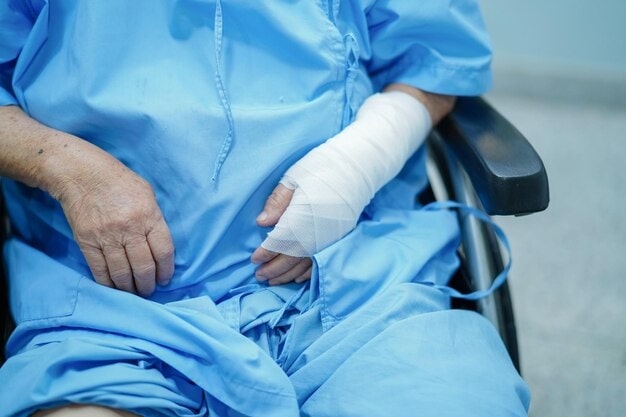Understanding Hand Arthritis
What is Hand Arthritis?
Hand arthritis is a common condition that affects the joints in the hands and fingers, leading to pain, stiffness, swelling, and reduced mobility. It occurs when the protective cartilage that cushions the joints wears down over time, causing bones to rub against each other. Such cartilage deterioration can stem from various factors including aging, genetics, and previous injuries.This condition can make everyday tasks, such as gripping objects or writing, difficult and painful. While there is no cure, various hand arthritis treatments aim to manage symptoms and slow progression, allowing individuals to maintain a better quality of life.
Types of Hand Arthritis
There are several types of arthritis that can affect the hands, including:
- Osteoarthritis (OA): The most common form, resulting from wear and tear over time.
- Rheumatoid Arthritis (RA): An autoimmune disease that causes inflammation in the joints.
- Psoriatic Arthritis: Associated with psoriasis, this condition leads to joint pain and swelling.
- Post-Traumatic Arthritis: Develops after a previous injury to the hand or wrist.
The Role of a London Hand Specialist
How a Hand Specialist Diagnoses Arthritis
A London hand specialist is an expert in diagnosing and treating hand arthritis. During an initial consultation, they will assess the patient’s symptoms, medical history, and perform a physical examination. Diagnostic tests such as X-rays, MRIs, or blood tests may be used to determine the severity of arthritis and identify the best treatment approach.
Non-Surgical Treatments for Hand Arthritis
Many arthritis sufferers prefer to start with non-surgical treatments to manage symptoms and improve hand function. A London hand specialist can offer several options, including:
Medications
- Pain relievers and anti-inflammatories: Over-the-counter medications like ibuprofen and acetaminophen help reduce pain and swelling.
- Corticosteroid injections: These provide temporary relief by reducing inflammation in the affected joints.
- Disease-modifying anti-rheumatic drugs (DMARDs): Used for autoimmune-related arthritis like RA to slow disease progression.
Hand Therapy and Exercises
A specialist may recommend working with a hand therapist who can design exercises to strengthen muscles, improve flexibility, and reduce stiffness. Common exercises include:
- Stretching exercises to improve joint mobility
- Strengthening exercises to maintain grip function
- Heat and cold therapy to reduce inflammation and pain
Assistive Devices
To ease daily activities, a London hand specialist may suggest using assistive devices such as:
- Splints and braces to support the joints
- Specialised grips and ergonomic tools for writing and holding objects
- Voice-activated technology to reduce strain on the hands
- Application of non-pharmacological pain management devices like Sensonica® Vega

Surgical Treatments for Severe Cases
When non-surgical treatments no longer provide relief, a hand specialist may recommend surgical intervention. The type of surgery depends on the severity and location of the arthritis.
Joint Fusion (Arthrodesis)
This procedure involves fusing the affected joint to eliminate movement and pain. While this limits flexibility, it provides long-term stability and relief from pain.
Joint Replacement (Arthroplasty)
For patients with severe arthritis, joint replacement surgery replaces the damaged joint with an artificial implant. This restores movement and reduces pain, allowing patients to regain function.
Tendon Repair
In cases where arthritis has damaged tendons, a specialist may perform tendon repair surgery to improve movement and reduce discomfort.
Lifestyle Changes for Managing Hand Arthritis
In addition to medical treatments, a London hand specialist may advise lifestyle adjustments to help manage symptoms effectively.
Diet and Nutrition
Eating an anti-inflammatory diet can help reduce arthritis symptoms. Beneficial foods include:
- Omega-3-rich fish like salmon and mackerel
- Leafy greens such as spinach and kale
- Nuts, seeds, and olive oil for healthy fats
- Whole grains to reduce inflammation
Physical Activity and Hand Care
Engaging in regular low-impact activities can keep joints flexible and reduce stiffness. Recommended exercises include:
- Swimming to improve mobility without strain
- Yoga and stretching to maintain flexibility
- Using stress balls to strengthen hand muscles
Psychological Support and Coping Strategies
Arthritis can have an emotional impact, as chronic pain and reduced mobility can affect daily life. A London hand specialist may recommend:
- Counselling or support groups for emotional well-being
- Mindfulness and stress management techniques to cope with pain
- Occupational therapy to adapt daily tasks and maintain independence
When to See a London Hand Specialist
Seeking help early can prevent arthritis from worsening. Signs that indicate it’s time to consult a specialist include:
- Persistent pain and stiffness in the hands
- Swelling or deformities in the fingers
- Difficulty performing daily tasks
- Symptoms that do not improve with at-home treatments
Conclusion
Hand arthritis can be a debilitating condition, but with the expertise of a London hand specialist, sufferers can find effective treatments to manage pain and restore hand function. From non-surgical options like medication and therapy to advanced surgical interventions, there are solutions available to improve quality of life. Hand specialists in London offer personalised care, tailoring treatment plans to the specific needs and severity of each patient’s condition. This comprehensive approach ensures that individuals receive the most appropriate and effective care, maximising their chances of a positive outcome.
Taking proactive steps, such as incorporating lifestyle changes and seeking early medical intervention, can make a significant difference in managing arthritis symptoms. With the right approach, individuals can regain mobility, reduce pain, and continue to perform daily activities with greater ease. Furthermore, regular check-ups and ongoing support from healthcare professionals are crucial for long-term management and preventing further joint damage.

